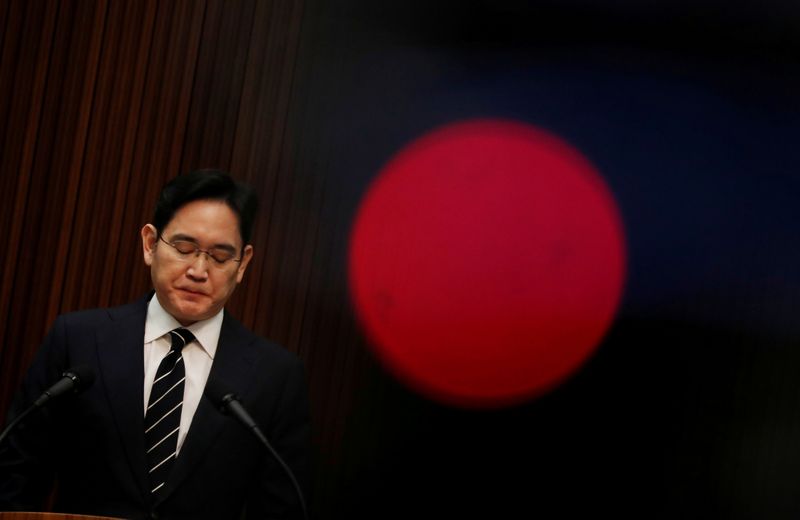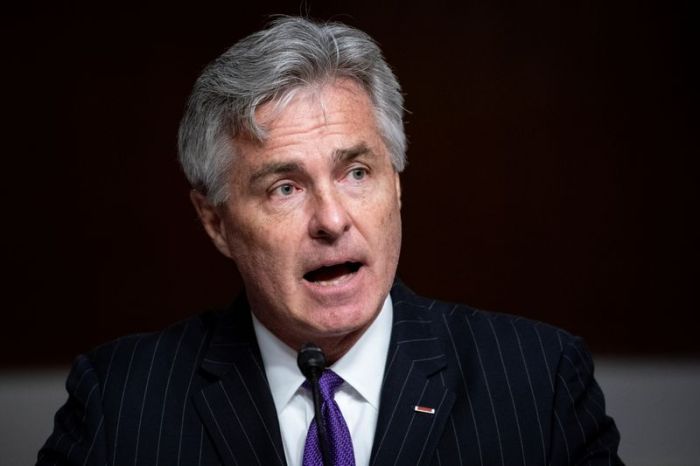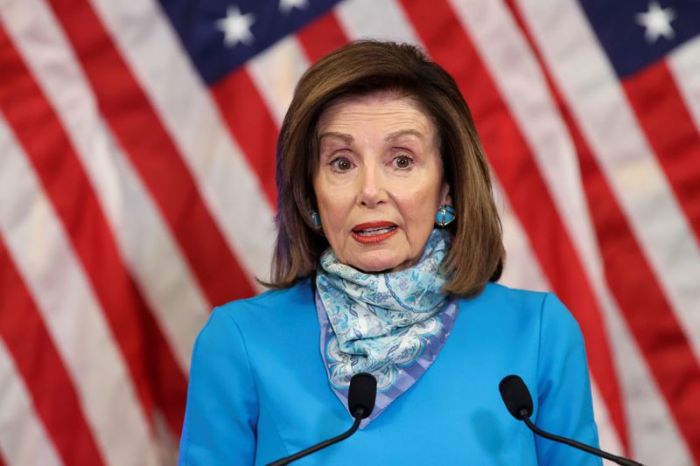SEOUL (Reuters) – Samsung Group heir Jay Y. Lee’s vow to end dynastic succession at South Korea’s biggest conglomerate following three generations of family control sparked skepticism in some quarters and worry in others for the future of the country’s corporate champions.
Lee made the surprise announcement on Wednesday saying he would not pass the company founded by his grandfather in 1938 to his children. He also apologised for a bribery scandal involving former president Park Geun-hye and Samsung Group, as well as for the group’s union-busting activities.
An internal governance oversight panel headed by a former supreme court judge called for more specific details about how Lee intended to prevent misconduct in the future.
Lee’s announcement, however vague, sent shockwaves through South Korea’s corporate elite, dominated by a handful of families who run business empires known as “chaebol” that wield huge political and economic power Asia’s fourth-largest economy.
“Other conglomerates are nervous,” Kwon Tae-shin, vice chairman of the Federation of Korean Industries, told Reuters.
The business lobby group said family ownership had served the chaebols well, helping them compete with international rivals like Apple Inc <AAPL.O> and rapidly grow the economy from the rubble of the 1950-1953 Korean War.
Any moves by the Lee family to relinquish control would only fuel calls for other chaebol families to do the same, Kwon added. Chaebols like Hyundai Motor <005380.KS> have are on the cusp of undergoing succession to third- or fourth-generation children.
Some governance experts said Lee’s apology should be seen in the context of his legal battles, as the 51-year-old awaits a court ruling on a corruption case which could result in a lengthy prison sentence.
They also said his promise to relinquish family control lacked detail.
“It is an empty promise. This is about 20 years time and there is no binding commitment,” Park Sang-in, a Seoul National University professor and an expert on corporate governance, said.
Despite Samsung’s success as the world’s largest memory chip and smartphone maker, persistent legal troubles surrounding the Lee family have made them deeply unpopular in South Korea.
Some critics say Lee was trying to divert public attention from the ongoing legal controversy by vowing to be the last in the family line to control the conglomerate, which has 62 affiliates and posted revenue of $267 billion last year.
“If he really wants to sever the family control of the group, he has to announce how he will offload stocks in Samsung’s de facto holding company, Samsung C&T, as Bill Gates sold his stake in Microsoft,” Kim Woo-chan, a professor of finance at Korea University Business School, said.
Lee did not specifically address his legal troubles, including a troubled merger of two Samsung units which is key to his succession planning and which prosecutors found to be at the centre of the bribery scandal.
Nor did he mention an ongoing probe by prosecutors into an alleged accounting fraud at Samsung’s biotech affiliate, Samsung Biologics <207940.KS>.
The Supreme Court in August overturned an appeals court ruling on the bribery case, raising the possibility of a tougher sentence than the suspended jail term Lee received in 2018 for seeking favours from former president Park.
Despite turmoil at the top, Samsung Electronics Co Ltd <005930.KS>, the crown jewel of Samsung Group, managed to increase earnings in the first quarter thanks to solid chip sales even as the coronavirus outbreak hit demand for its smartphones.
(Reporting by Hyunjoo Jin; Additional reporting by Heekyong Yang; Editing by Stephen Coates)
























